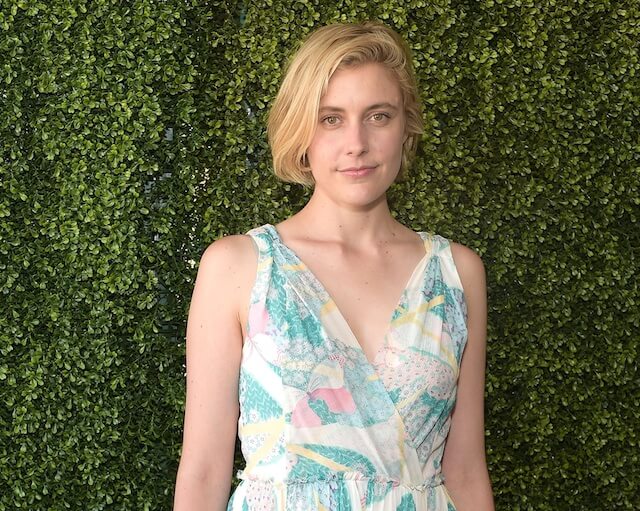Not only does Greta Gerwig act in movies by her boyfriend, the filmmaker Noah Baumbach; she writes them with him too. Before they were an item they cowrote “Frances Ha.” Now that they are they’ve collaborated on “Mistress America,” which stars Gerwig as Brooke, a mysterious and possibly crazy New York kook who takes a young, inexperienced freshman collegiate (Lola Kirke) under her wing, with quip-strewn but less than ideal results. And as with any script she’s worked on, Gerwig — who manages to seem articulate and self-doubting at the same time — isn’t sure how it got done. Brooke has this patched-together life of odd jobs and squatting that I feel is something that is very New York right now — although perhaps it’s always been that way.
Brooke was a character who to us felt like she belonged to an older time. Nothing was a commentary on what’s happening right now. I do think there are a lot of people who are putting together their lives in this fashion — “I do this, and I do that, I’m an exercise instructor and an interior designer and a tutor. But my dream [laughs] is to ride horses.” And you think, “How is this related to that other thing?” But to us it felt almost reminiscent of the ’80s in a way. There were a lot of influences we had — “Desperately Seeking Susan” and “After Hours” and “Something Wild.” Brooke felt connected to an older New York. Even the fact that she lives in Times Square seemed old-fashioned somehow. RELATED: Greta Gerwig talks about the death of youth in “Frances Ha” Maybe Times Square is the next cool neighborhood.
That’s the new neighborhood, I know. I think we’re constrained by what Times Square looks like. It’s set right now, but I was imagining her walking by nudie bars, even though they don’t exist now. That’s my conception of it. I first came to New York when I was five. I have all these memories of steam rising from the sidewalk and things seeming shady and dicey. Something about that feeling we wanted to capture, even though we couldn’t literally capture it. There are parts that are still shady and dicey. There are still some questionable dives around Port Authority, last I checked. Port Authority is still really down and dirty. Also Penn Station is a little bit on the edge. If you want some excitement go to Port Authority and Penn Station! [Laughs]
It’s interesting to see a portrait of female friendship that is built around idolization. Usually when a woman is being idolized out of proportion it’s by men.
Making it between an 18 year old and a 30 year old was exciting, because when you’re 18 you’re prone to idolizing people. But you also don’t know that you’re capable of hurting an adult. Adults seem like static, unhurtable people. Even your parents, you can yell at them but it’s a different thing. Teachers seem unhurtable. I had the experience at 18 of realizing, “No, you’re an agent in the world and you can really make somebody feel terrible.” Which is a hard lesson to learn. We should talk about the screwball section of the film. That style of acting seems like it might be difficult to pull off, especially given how removed we are from it.
I think that’s in me. I’ve always responded to those movies. Part of the reason, I think, is that my first love was theater. I’ve always felt those movies were closer to theater, in some ways, than they are different strains of cinema. They feel like filmed plays. Sometimes they are filmed plays. The main thing to me is the premise that the language is the most important part of the filmmaking — that the words are being hurled around and the meaning is made by the actors in the room together, not in the editing room after. Actors are often quite isolated — “this shot, then this shot, then this shot, then this shot.” It’s more organic and everyone’s in the room together. And it was about getting to do [a screwball]. People don’t make them anymore. It’s something that feels very natural to me, even though it’s heightened. It’s sort of how I experience things. You wrote “Frances Ha” with Noah over e-mail. Did you have a similar process this time?
We’d go off and generate content on our own, then come back and trade pages and read them out loud, talk some more then go back out on our own. It’s such a mysterious and weird process. [Sighs] I don’t know. I don’t know how anything gets written. And when they’re done I don’t feel I’m any more skilled at making them than I was the first time. It always feels like it was made by magic. There was something Noah and I talked about, that you always end up looking at the last script you wrote and thinking, “How did I do that? How did I figure that out?” Every time you don’t know how to write this one. Follow Matt Prigge on Twitter @mattprigge
Greta Gerwig on ‘Mistress America’ and how writing is always like magic

Getty Images



















